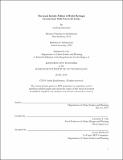| dc.contributor.advisor | Lawrence J. Vale. | en_US |
| dc.contributor.author | Janakiraman, Aarthi(Urban city planner)Massachusetts Institute of Technology. | en_US |
| dc.contributor.other | Massachusetts Institute of Technology. Department of Urban Studies and Planning. | en_US |
| dc.coverage.spatial | a-ce--- | en_US |
| dc.date.accessioned | 2020-02-28T20:52:47Z | |
| dc.date.available | 2020-02-28T20:52:47Z | |
| dc.date.copyright | 2019 | en_US |
| dc.date.issued | 2019 | en_US |
| dc.identifier.uri | https://hdl.handle.net/1721.1/123959 | |
| dc.description | This electronic version was submitted by the student author. The certified thesis is available in the Institute Archives and Special Collections. | en_US |
| dc.description | Thesis: M.C.P., Massachusetts Institute of Technology, Department of Urban Studies and Planning, 2019 | en_US |
| dc.description | Cataloged from student-submitted PDF version of thesis. | en_US |
| dc.description | Includes bibliographical references (pages 132-137). | en_US |
| dc.description.abstract | Institutionalized heritage protection has become a global phenomenon, and the UNESCO World Heritage program is perhaps the most well-known of these efforts. Although the List is intended to be concerned only with heritage, in reality it also serves as a global stage for broadcasting geopolitics, national agendas, and subnational motives. Given these hidden functions driving the World Heritage List, I interrogate what the implications of listing really are through the living heritage site of 'Old Town of Galle and its Fortifications' in Sri Lanka. I consider the tensions between different scales of identity-building associated with the site, explore the politics of conservation and its motivating forces, and probe the impacts of tourism alongside the mechanisms supporting its imbalances. Drawing from the findings at this site, I consider broader applications to other potential World Heritage sites and discuss directions that demand further attention in global planning and heritage practice. | en_US |
| dc.description.statementofresponsibility | by Aarthi Janakiraman. | en_US |
| dc.format.extent | 140 pages | en_US |
| dc.language.iso | eng | en_US |
| dc.publisher | Massachusetts Institute of Technology | en_US |
| dc.rights | MIT theses are protected by copyright. They may be viewed, downloaded, or printed from this source but further reproduction or distribution in any format is prohibited without written permission. | en_US |
| dc.rights.uri | http://dspace.mit.edu/handle/1721.1/7582 | en_US |
| dc.subject | Urban Studies and Planning. | en_US |
| dc.title | The local identity politics of world heritage : lessons from Galle Fort in Sri Lanka | en_US |
| dc.type | Thesis | en_US |
| dc.description.degree | M.C.P. | en_US |
| dc.contributor.department | Massachusetts Institute of Technology. Department of Urban Studies and Planning | en_US |
| dc.identifier.oclc | 1140447091 | en_US |
| dc.description.collection | M.C.P. Massachusetts Institute of Technology, Department of Urban Studies and Planning | en_US |
| dspace.imported | 2020-02-28T20:52:46Z | en_US |
| mit.thesis.degree | Master | en_US |
| mit.thesis.department | UrbStud | en_US |
